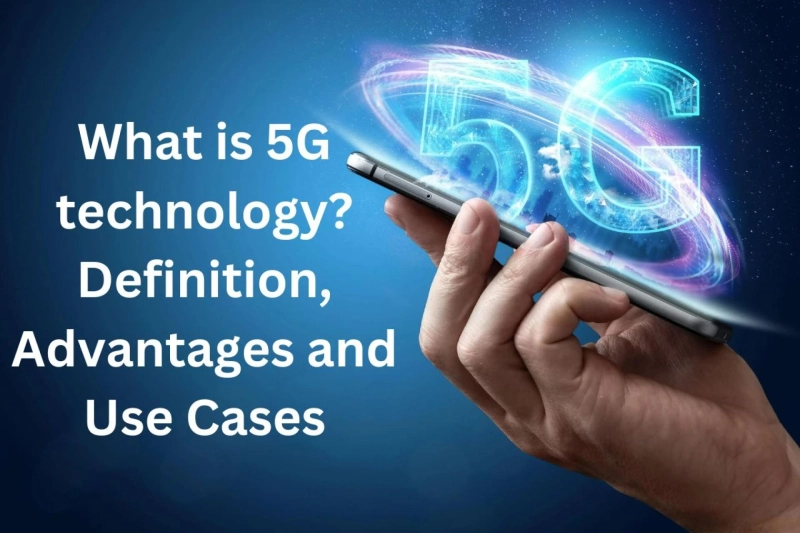Introduction:
As the world becomes increasingly interconnected, the advent of 5G technology has taken center stage, promising unprecedented levels of speed, reliability, and connectivity. In this blog, we will delve into the definition of 5G, explore its advantages over previous generations, and highlight some compelling use cases that showcase its transformative potential.
I Defining 5G Technology
1.1 The Evolution of Wireless Communication:
5G, or fifth-generation technology, represents the latest milestone in the evolution of wireless communication standards. It succeeds 4G/LTE, offering a significant leap in terms of data speed, capacity, and latency.
1.2 Key Characteristics of 5G:
Enhanced Data Speeds: 5G is designed to provide dramatically faster data speeds compared to its predecessors, reaching gigabit-per-second speeds.
Low Latency: Reduced latency ensures near-instantaneous communication, making 5G ideal for applications that demand real-time responsiveness.
Increased Network Capacity: 5G networks can accommodate a vast number of connected devices simultaneously, paving the way for the Internet of Things (IoT).
II Advantages of 5G Technology
2.1 Enhanced Speed and Bandwidth:
The primary advantage of 5G is its ability to deliver exponentially faster data speeds, enabling quicker downloads, smoother streaming, and seamless communication.
2.2 Low Latency:
Reduced latency in 5G networks means that actions initiated remotely, such as in augmented reality (AR) or virtual reality (VR) applications, occur with minimal delay, significantly improving user experience.
2.3 Improved Connectivity in Dense Areas:
5G networks are designed to handle high device density in crowded urban areas or stadiums, ensuring stable and reliable connections even in the midst of large crowds.
2.4 Enabling Emerging Technologies:
5G is a crucial enabler for emerging technologies like autonomous vehicles, smart cities, and the IoT, providing the necessary infrastructure for seamless communication between devices.
III Use Cases of 5G Technology
3.1 Enhanced Mobile Broadband (eMBB):
5G enables faster and more reliable mobile internet, offering an immersive experience for users by supporting high-definition streaming, virtual reality applications, and online gaming.
3.2 Internet of Things (IoT):
The extensive device connectivity of 5G makes it a cornerstone for IoT applications, facilitating the exchange of data between a myriad of devices in smart homes, cities, and industries.
3.3 Healthcare and Remote Surgery:
In healthcare, 5G's low latency and high bandwidth open up possibilities for remote surgeries and telemedicine, allowing doctors to perform procedures or consultations from a distance with precision.
3.4 Autonomous Vehicles:
5G plays a pivotal role in the development of autonomous vehicles by enabling real-time communication between vehicles and infrastructure, enhancing safety and efficiency on the roads.
Conclusion:
5G technology is more than just an incremental upgrade; it's a technological leap that promises to reshape how we connect, communicate, and innovate. With its enhanced speed, low latency, and capacity for massive device connectivity, 5G opens the door to a new era of possibilities, from immersive entertainment experiences to the widespread adoption of transformative technologies. As 5G networks continue to expand globally, the full extent of its impact on various industries and daily life is yet to be fully realized, but the potential for positive change is undoubtedly profound.
FAQs about 5G Technology
How will 5G impact the internet?
5G will significantly impact the internet by providing faster data speeds, lower latency, and increased capacity. This will lead to enhanced connectivity, improved user experiences for applications like streaming and gaming, and the widespread adoption of technologies such as the Internet of Things (IoT) and augmented reality (AR).What are the big problems of 5G?
Some of the big problems of 5G include concerns related to cybersecurity and privacy, the high cost of infrastructure deployment, potential health effects due to increased electromagnetic radiation, and the need for extensive network coverage to ensure a seamless and reliable experience.What are the limitations of 5G?
Some limitations of 5G include the shorter range of high-frequency millimeter-wave signals, challenges in penetrating obstacles like buildings, and the need for a significant infrastructure investment to deploy and maintain widespread 5G coverage. Additionally, regulatory and spectrum allocation issues may pose limitations in certain regions.Also read
data science course in chennai



